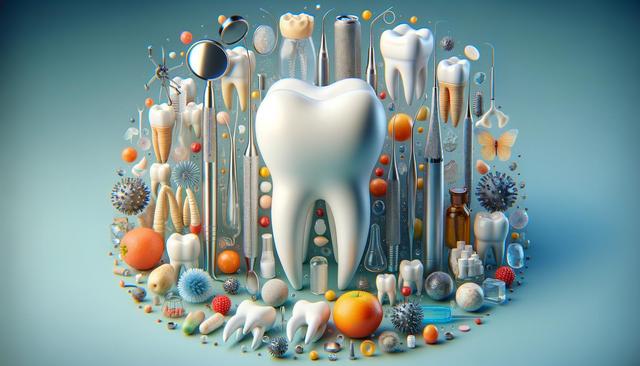Why Tooth Replacement Matters
Losing a tooth impacts more than just your smile. It can affect your ability to chew properly, alter your speech, and even lead to bone loss in the jaw. Tooth replacement not only helps restore appearance but also plays a vital part in maintaining oral health. When a tooth is missing, the surrounding teeth may shift over time, causing misalignment and potential bite issues. Additionally, the loss of stimulation to the jawbone in that area can result in bone deterioration, which can alter facial structure and create further complications.
The psychological aspect of tooth loss should not be overlooked either. Many individuals report feeling self-conscious or anxious about their smile, which can affect social interactions and confidence. Replacing missing teeth can significantly improve self-esteem and overall quality of life. Whether due to injury, decay, or disease, addressing tooth loss promptly ensures better long-term oral and general health outcomes.
Common Tooth Replacement Methods
There are several options available for replacing missing teeth, each with specific benefits and considerations. The most commonly recommended methods include:
- Dental implants: Surgically placed into the jawbone, these serve as a base for crowns or bridges.
- Fixed bridges: These use adjacent teeth as anchors to support the artificial tooth.
- Removable partial dentures: Designed for patients missing several teeth, they can be taken out for cleaning.
- Complete dentures: Used when all teeth need to be replaced in either the upper or lower arch.
The choice of treatment depends on factors such as the location of the missing tooth, the condition of the surrounding teeth and gums, and the patient’s overall health and preferences. Consulting with a dental professional can help determine the most appropriate option for each individual case.
Dental Implants: A Long-Term Solution
Dental implants are widely regarded as a durable and highly functional solution for tooth replacement. They are designed to mimic the structure of natural teeth by embedding a titanium post into the jawbone, which acts as an artificial root. Once the implant integrates with the bone—a process called osseointegration—a crown is placed on top to complete the restoration.
Benefits of dental implants include:
- Stability and natural appearance
- Preservation of jawbone density
- Improved oral function for eating and speaking
- Longevity with proper care
However, implants may not be suitable for everyone. Adequate bone density is required for successful placement, and patients must maintain good oral hygiene to prevent complications. Additionally, the procedure involves surgery, which may not be ideal for individuals with certain medical conditions. Despite these limitations, dental implants remain a highly regarded option for suitable candidates.
Understanding Dentures and Bridges
While dental implants offer a fixed solution, bridges and dentures provide alternative approaches that can also be effective. A dental bridge typically consists of one or more artificial teeth anchored to neighboring natural teeth or dental crowns. It is a non-removable option that can restore aesthetics and function efficiently in specific cases.
Removable dentures, on the other hand, are popular among patients who have lost multiple or all teeth. These devices are designed to fit securely over the gums and can be taken out for cleaning and maintenance. Advances in denture technology have led to improved materials and custom fitting, offering increased comfort and appearance.
Key benefits of bridges and dentures include:
- Relatively lower cost compared to implants
- Non-surgical placement
- Customizable for various levels of tooth loss
However, they may require periodic adjustments and replacements over time. They also do not prevent bone loss in the same way implants do, which is an important consideration for long-term oral health.
Choosing the Right Tooth Replacement Option
Selecting the appropriate method for tooth replacement involves careful evaluation of personal needs and dental health. A comprehensive dental exam and consultation can help identify the most effective treatment plan. Patients should consider several factors, such as:
- Number of teeth missing and their location
- Overall oral and general health
- Budget and insurance coverage
- Willingness to undergo surgery or long-term procedures
Working closely with a dental professional ensures a tailored approach that balances function, aesthetics, and health outcomes. It’s also important to review maintenance requirements for each option. For instance, while implants require regular brushing and flossing similar to natural teeth, dentures need to be soaked and cleaned daily.
Ultimately, the goal of any tooth replacement method is to restore comfort, functionality, and confidence. By understanding the choices available and the implications of each, patients can make informed decisions that align with their lifestyle and health goals.
Conclusion: Taking the Next Step Toward a Healthier Smile
Tooth replacement is a significant decision that can greatly impact both oral health and quality of life. Whether considering implants, bridges, or dentures, understanding the benefits and limitations of each option is essential. Consulting with a dental professional will provide the guidance needed to choose a suitable solution tailored to individual circumstances. By addressing tooth loss promptly and effectively, individuals can enjoy restored function, improved appearance, and renewed confidence in their daily lives.




Leave a Reply